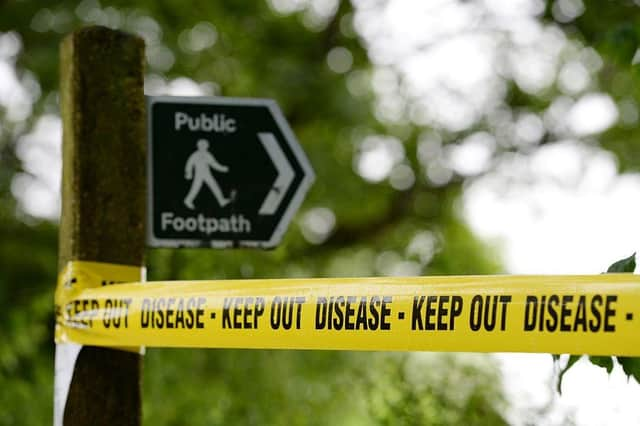Bird flu confirmed at commercial poultry premises in Lincolnshire


Cases of avian influenza (bird flu) H5N1 have been confirmed at a commercial poultry premises in Donington, near Boston.
A 3km Protection Zone and 10km Surveillance Zone will now be put in place around the property.
Advertisement
Hide AdAdvertisement
Hide AdA spokesperson for Lincolnshire County Council said: “Officers from Lincolnshire Trading Standards will be visiting properties in the Protection Zone over the coming days to reassure residents and provide advice to businesses.
“If you suspect any type of avian influenza in poultry or captive birds you must report it immediately by calling the Defra Rural Services Helpline on 03000 200 301.
“It is vital that everyone who owns birds maintains strong biosecurity to limit the risk of the disease spreading.
“If you have not already, you should register your poultry, even if only kept as pets, so you can be contacted you during an outbreak locally. This is a legal requirement if you have 50 or more birds.”
Advertisement
Hide AdAdvertisement
Hide AdFor anyone who comes across any dead or visibly sick wild birds in the area, the advice is not to pick them up. Instead, you should report them online or to the Defra helpline on 03459 33 55 77.
“Defra will then collect some of these birds and test them to understand how the disease is distributed geographically and in different types of bird,” the spokesperson adds.
“Not all birds will be collected and those that aren’t are the landowner’s responsibility to safely dispose of.”
The UK Health Security Agency (UKHSA) has said that avian influenza is primarily a disease of birds and the risk to the general public’s health is very low.